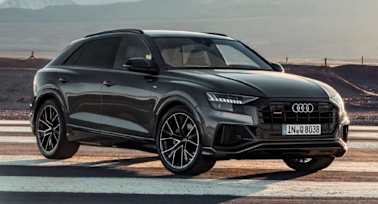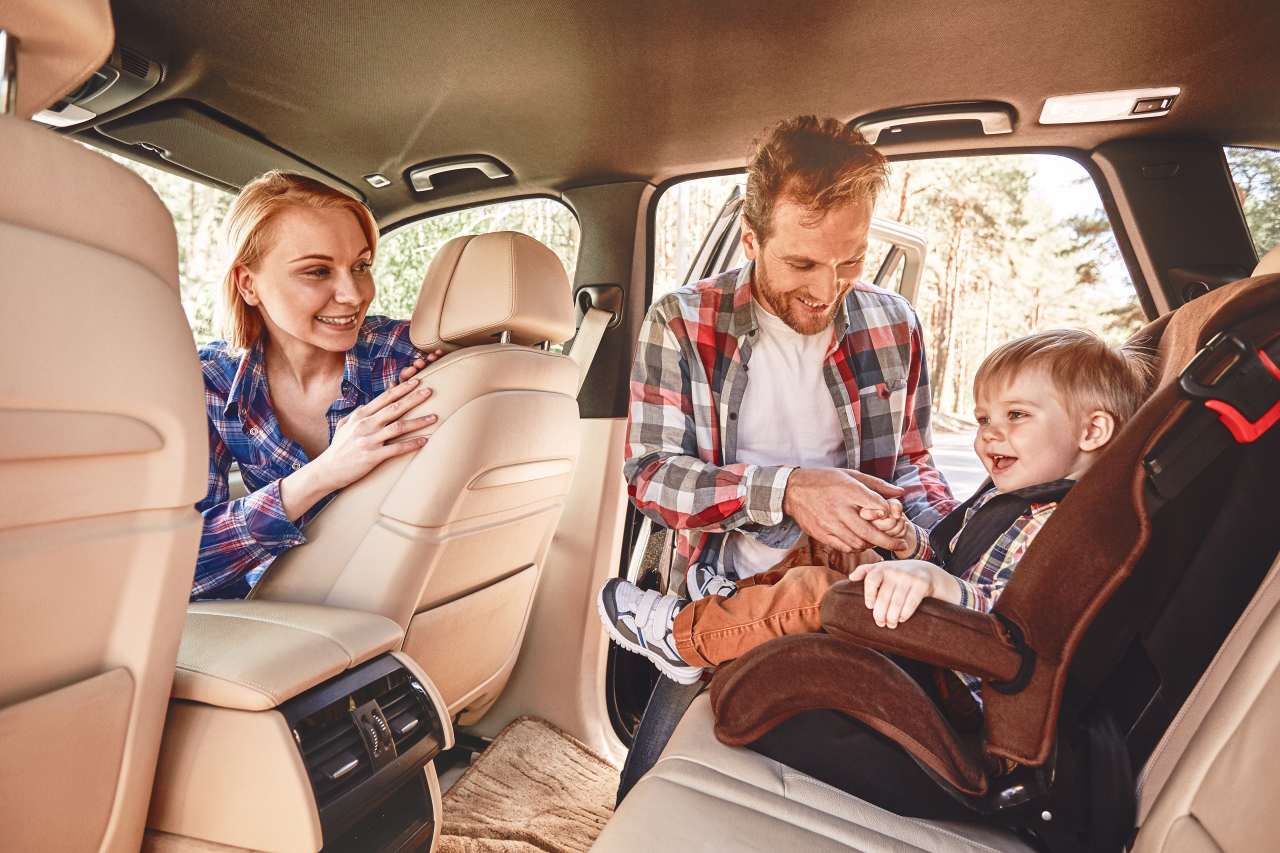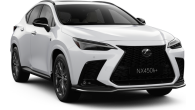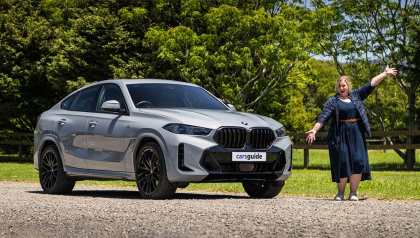Audi’s rival to swoopy ‘coupe’ SUV veterans like the BMW X6 has been given a refresh and it's already on sale in Australia.
It’s the more style-focused sibling to the Q7, forgoing the third row of seats, and is available with a plug-in hybrid (PHEV) variant for even more differentiation.
Given the opportunity to sample the updated large SUV coupe at its Australian launch, we’re checking in with the near seven-year old model to see if its updates can keep it competitive with rivals.
-
Epic electric off-road concept shows the future of 4WDs with rigid portal axles, more than 13,000Nm and enough power to rival a V8 Toyota LandCruiser, Nissan Patrol and Land Rover Defender
-
New 650km-plus electric car revealed: Tesla Model Y, Porsche Macan and BMW iX3 rival takes shape in the form of the 2026 Audi Q6 e-tron Sportback
-
'The freshest premium model range in the market' Audi to overhaul most of its core line-up in 2025: New hybrids, SUVs and electric cars on the way to help German brand dethrone key rivals and challenge new players
Audi Q8 2025: 50 Tdi Quattro S Line Mhev
| Engine Type | Diesel Turbo V6, 3.0L |
|---|---|
| Fuel Type | Diesel/Electric |
| Fuel Efficiency | 7.1L/100km (combined) |
| Seating | 5 |
| Price From | $131,450 - $151,140 |
| Safety Rating |
|
Price and features – Does it represent good value for the price? What features does it come with?
7 / 10
There are three variants of the Audi Q8, all with different drivetrains which we’ll get to shortly.
The two main variants in the line-up are the Q8 50 TDI and 55 TFSI S line, both starting from $143,415, before on-road costs. That’s about the same prices these variants were before the update, too.
The main difference between the two is mechanical, so they share a lot of the same features when it comes to kit. Both have 21-inch alloy wheels, an S line interior and exterior package and adaptive air suspension, but the LED Matrix lights as standard are a highlight - pun intended.
There are heated leather seats up front, adjustable leather seats in the rear, three-zone climate control, updated tech via a 10.1-inch multimedia touchscreen plus Audi’s 12.3-inch digital driver display, wireless Apple CarPlay and Android Auto and a host of safety and driver assist features.
A step up to the plug-in hybrid Q8 60 TFSIe will cost $154,284, and brings with it a black exterior pack, red brake calipers, sports adaptive air suspension and all the accoutrements that accompany a car that needs to be plugged in.
A $3900 'Luxury Seat Package' adds sports seats in the front with venting function, and heated rear outer seats, while a $6900 'Premium Plus Pack' adds 22-inch alloys, sport-tuned adaptive air suspension, dynamic all-wheel steering, a black exterior styling pack and power-assisted closing doors.
Design – Is there anything interesting about its design?
8 / 10
The Q8 was already more aggressive-looking than its Q7 relative, but the facelift has sharpened up some of its features like the bumper design and the grille insert.
Its silhouette has a bit of muscle about it, giving away perhaps slightly that it shares some of its underpinnings with the Porsche Cayenne.
Updated lights front and new rear bumper also help differentiate it from the pre-facelift version.
It’s a good-looking thing, to my eyes, its proportions almost like a hot hatch has been inflated (albeit with a shorter glasshouse) rather than looking like a bulking SUV.
In terms of dimensions, the Q8 is 1717mm tall, 5004mm long and 2190mm wide including mirrors (1996mm without), but the large SUV doesn’t feel extremely cavernous inside where the design has mostly remained the same.
Practicality – How practical is its space and tech inside?
7 / 10
Along with the design, the Q8’s functionality is mercifully similar to pre-facelift. This means there are three screens, the main 10.1-inch touchscreen, the 12.3-inch driver display, and an 8.6-inch touchscreen from functions like climate control.
While the layouts have been tweaked and some new features added, they’ll feel familiar if you’ve used Audi’s tech before. There are still easy-to-use buttons on the screens and a relatively simple menu system that’s customisable without being confusing.
On the topic of buttons, there are also plenty of physical buttons still present in the car, a welcome layer of ease and functionality compared to current trends.
Physically, there’s plenty of space in the Q8, though weirdly not a lot of storage. The seats are comfortable and the cabin feels airy, but aside from a slim phone charger pad under the central armrest, the cupholders, and the door cards, there aren’t a lot of big places to put things.
Fortunately the rest of the ergonomics check out, everything’s within reach and all the touchpoints feel nice, plus the steering wheel has a nice shape and feel to it.
The second row features its own climate control via temperature and two vents, plus there are USB-C ports and a 12V outlet. It’s spacious, but not quite luxurious, though the sloping roofline doesn’t eat much into headroom.
Behind that, the boot has a claimed 605L of capacity, or 1755 litres with the second row folded down.
Under the bonnet – What are the key stats for its engine and transmission?
8 / 10
Each variant has a different drivetrain, as mentioned, so let’s go numerically starting with the Q8 50 TDI, which is the diesel-powered member of the trio.
With a turbocharged 3.0-litre V6 driving all four wheels with its 210kW and 600Nm via an eight-speed automatic, the 50 TDI comes with a claimed 6.1-second 0-100km/h time. Top speed is 241km/h, for reference.

The 55 TFSI has a similar drivetrain, but runs on petrol and boasts more power at 250kW, but less torque with 500Nm. It’s a touch quicker to 100km/h, says Audi, claiming a 5.9-second sprint. Top speed is limited to 250km/h.
Both the 50 and 55 feature 48-volt mild-hybrid tech to bring fuel use down and allow coasting at higher speeds, though if you want something properly hybrid… there’s the Q8 60 TFSIe, which has undergone a few changes mechanically for the facelift.

It also has a 3.0-litre turbo V6, but it’s aided by an electric motor for an output of 360kW and 700Nm. It’s 20kW up from before, and also now 0.4 seconds faster to 100km/h for a nicely rounded 5.0-second run.
Efficiency – What is its fuel consumption? What is its driving range?
8 / 10
In the same order, the Q8 50 TDI has a claimed 7.1L/100km fuel consumption figure, while the 55 TFSI is a little thirstier at 9.2 litres.
They have 75- and 85-litre fuel tanks, respectively, though on the launch we didn’t get a chance to realistically put their consumption figures to the test.
Of course, the 60 TFSIe has a much lower claimed fuel use thanks to its 25.9kWh battery (22.0kWh net, which is 7.6kWh more than before). A claimed electric driving range of 74km is 15km more than before, so its 1.8L/100km claimed consumption figure is also 0.8 litres less.
The 1.8-litre figure, it should be noted, is from a test that allows a full battery charge and relies very heavily on EV driving, so unless you keep the battery charged before each day of driving, your actual fuel consumption could vary wildly.
Driving – What's it like to drive?
9 / 10
There aren’t many surprises when it comes to getting behind the wheel in the Q8 - and for Audi, this should be taken as a compliment.
The Q8 is a very capable, comfortable and classy large SUV that, thanks to elements like standard air suspension and optional all-wheel steering, can get away with more than its size would suggest.
That air suspension, for example, does a fabulous job of maintaining a balance between comfortable ride quality without completely numbing the feedback - even some particularly grim road surfaces were no match.
The steering is light enough to not feel a chore, but is nicely dialled-in so you don’t need to second-guess inputs.
The choice between diesel TDI and petrol TFSI might come down to how much extra-urban or rural driving you do, though neither struggle with the Q8’s weight (more than 2.1 tonnes).
On a main highway like the Hume between Melbourne and Sydney, the diesel V6 50 TDI (coupled with air suspension on a soft setting) is hard to fault.
But the 60 TFSIe with its extra go and now-decent EV range is a tempting offer day-to-day. The all-wheel steering is best put to use on big cars like this, and it genuinely helps with low-speed maneuvering.
Of course, it’s not exactly a shrinking violet when faced with narrow winding roads. You’d be intimidated if you rounded a blind bend to see one headed your way at full speed but the engines don’t make a fuss audibly and the Q8 doesn’t necessarily encourage hard driving - it’s just capable of it.
Warranty & Safety Rating
Safety – What safety equipment is fitted? What is its safety rating?
8 / 10
The Audi Q8 has a maximum five star ANCAP safety rating from assessment in 2019, with especially good scoring for occupant protection (93 per cent for adults, 88 per cent for children).
Audi says the Q8 has more than 30 driver assistance systems including adaptive cruise assist, lane assist and side assist, surround view cameras and new traffic sign recognition.
It’s got plenty of sensors, cameras and radar to warn of possible collisions, and can let you know of approaching dangers or help prevent things like opening a door in front of a cyclist.

While not groundbreaking, the Q8’s safety equipment doesn’t fall into the trap of becoming a distraction, meaning it only alerts or intervenes in necessary situations.
Even its lane-keeping assist, while not bang-on perfect 100 per cent of the time, doesn’t wrestle with you to go where it wants within the lane.
For reference, the Q8 has eight airbags including dual-frontal, side-chest airbags for front and second row outboard passengers, plus side head-protecting or curtain airbags for both rows.
There are three top tethers for child seats across the second row, with ISOFIX anchors in the two outer positions.
Ownership – What warranty is offered? What are its service intervals? What are its running costs?
7 / 10
Audi’s five-year/unlimited kilometre warranty is pretty standard for a premium brand, but five years of free roadside assist and the ability to add a package to extend the warranty both add a little extra to the deal.
For the Q8, a five-year servicing plan is $3570, while the $4710 'Audi Advantage' plan adds two years to the warranty, two more services and two more years roadside assist.
Verdict
This large SUV exists to appeal to a much smaller group of people than its Q7 sibling, but there does sometimes need to be the ‘heart over head’ option. The Q8 doesn’t do a whole lot that its three-row relative can, in fact it’s a little less practical.
But, albeit still quite niche, the improved range and tech in the 60 TFSIe now means that the PHEV variant is a more usable car day-to-day.
Note: CarsGuide attended this event as a guest of the manufacturer, with travel, accommodation and meals provided.
Pricing Guides









.jpg)



























































































.png)





.jpg)
.jpg)